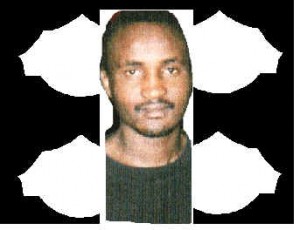Two years ago, February 5, 1999 Amadou Diallo was killed. One year ago, February 25, 2000 the four police officers that killed him were found innocent of responsibility. Since then what has been done to determine why it happened and how to ensure nothing like it ever happens again? The acquittal of the four police officers of any responsibility for the death of Amadou Diallo was a blow to my psyche. I felt as if something physically hit me in the chest. I was weighed down with my Blackness. This is a terrible statement to make, and an even more horrible way to feel. Sometimes one gets tired of being singled out, ignored, devalued, criminalized, marginalized, and targeted. Sometimes one can get a feeling of despair. This is what I felt for a moment when I heard the verdict of the Albany jury.
I was in Chicago at the time, attending the premier of a play that itself dealt with questions of morality in the context of life and death. I was one person of African descent among many people of European descent who had recently heard the news. Of course a discussion ensued. I really did not want to participate in a dialogue about the merit of the verdict. I was too hurt by the realization that an person; a citizen who had committed no crime standing at his or her front door can be shot to death by police officers and there be little if any consequence for such a hideous action. I was too angered that the concept of race, the reality of color and class allowed for debate of whether or not the police should be held responsible for the out come of such actions. Although I was among friendly people who were generally empathetic towards the injustice of Diallo’s death I felt alone. They were White and I am a Black male. This is not to say that a White person cannot see the injustice and feel just as strongly as I do about Diallo’s death and the events that led up to it. In fact once any world citizen puts the actions of the government into proper perspective it is easy to feel the outrage that this tragic event demands. But in a country where the color of one’s skin means so much and when that one is I it can be difficult to cross the bridge of understanding and commonality.
When I returned to Montclair New Jersey I began writing this essay and The Diallo Letters. While typing the letters Patrick Dorismond was shot. It has taken me a year to sort out my emotions and intellectual understanding of the course of events. Most agree that Amadou Diallo’s death was tragic. The nation argues over who should be held responsible for and how we should react to his death. Over the next year we shall closely examine the tragedy of Amadou’s death, and I hope to share with you my views on the tragedy and honor Amadou by keeping him alive in my words.
There are several sources of information about Amadou Diallo’s death and trial of the police officers that killed him. I hope the Diallo sites I picked will be helpful to you.









